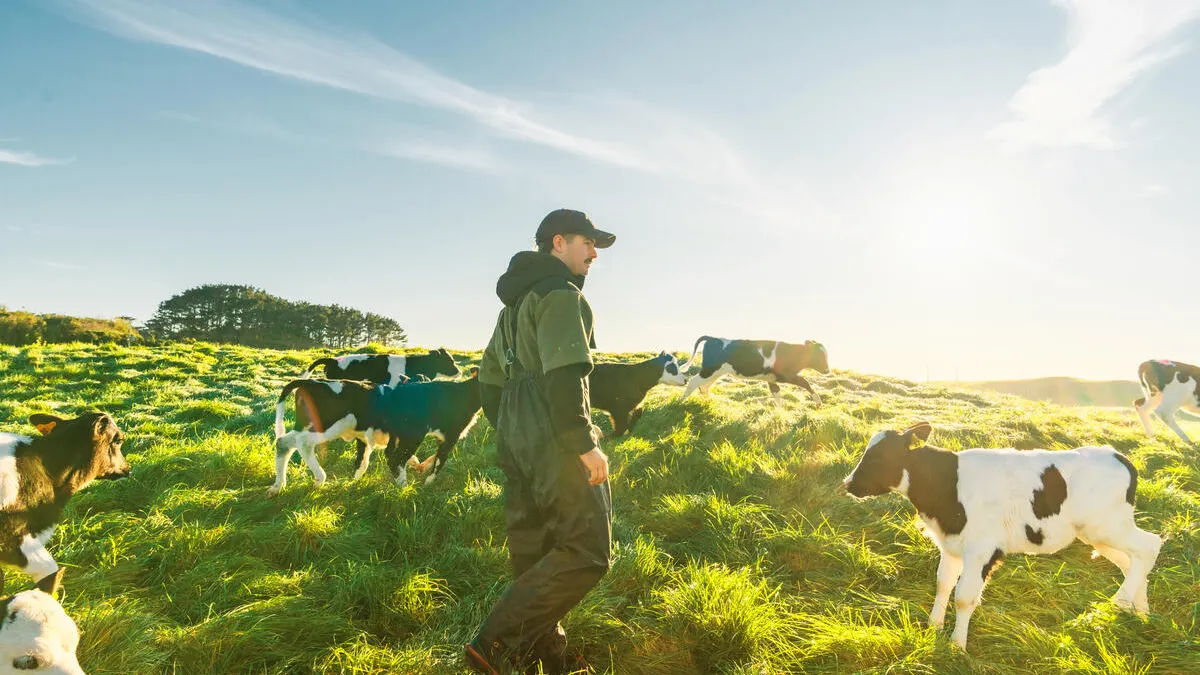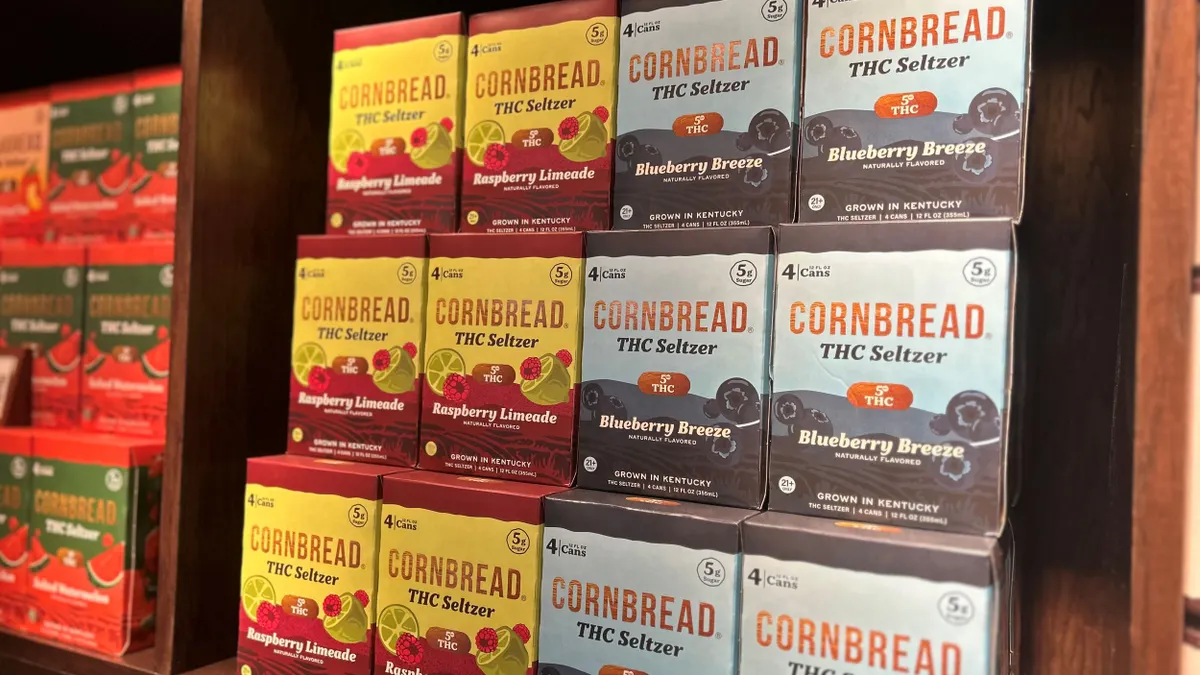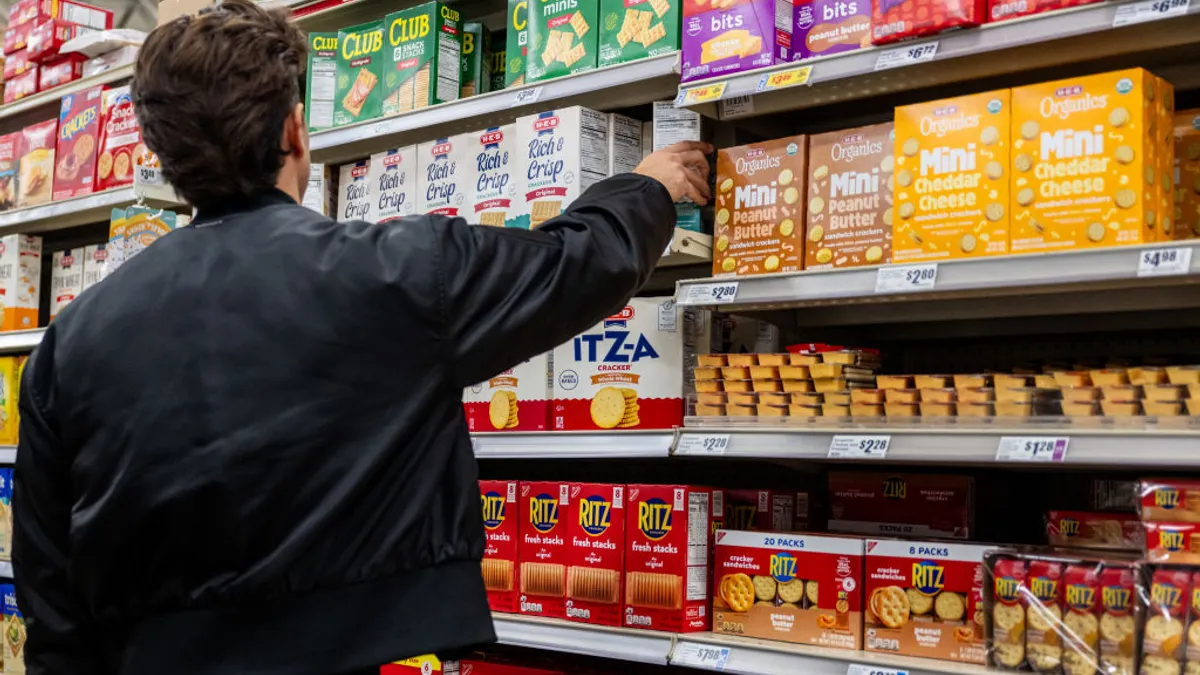From droughts and floods to heat stress and feed shortages, extreme weather is already disrupting dairy supply chains around the world. For food and dairy companies, these climate impacts aren’t a distant threat — they’re a growing business risk.
But there’s good news: The dairy sector also holds one of the most powerful tools for bending the curve on near-term warming and helping us avoid the worst climate change impacts — methane reduction.
Methane is a potent greenhouse gas, over 80 times more powerful than carbon dioxide in the first 20 years after it enters the atmosphere, and it accounts for over 60% of dairy farm emissions.
“Reducing methane emissions is one of the fastest ways to slow the pace of warming — and it’s also a prudent business move for food and dairy companies,” says Vrashabh Kapate, EDF’s senior manager, global dairy sector. “Companies that lead on methane are better positioned to manage supply chain risks, meet sustainability goals and respond to growing investor and consumer expectations.”
To help companies take action, Environmental Defense Fund (EDF) has launched the Net Zero Action Pathway for Dairy-Sourcing Companies — a hub of free, actionable resources created in partnership with the support of Pure Strategies, designed for dairy and food companies looking for a strategic approach to climate action in the dairy space.
The hub outlines a four-step approach:
1. Measure what matters
Because you can’t mitigate what you don’t measure, the first step is understanding where emissions are coming from. Dairy methane comes from cows — their burps and manure — so it’s essential for any company that sources dairy to assess emissions across their supply chain.
The hub includes open-source guidance to help companies build a methane-specific inventory and identify the biggest opportunities for impact — the first step toward building a plan to drive down emissions over time.
2. Be transparent
Sharing emissions data — even if it’s not yet perfect — builds trust with investors, customers and suppliers. It also helps companies prepare for emerging climate disclosure rules in various regions. Disclosing annually allows companies to iterate and improve over time.
Several companies, such as Bel and Lactalis USA, have already begun publicly disclosing their dairy methane emissions as part of their participation in the Dairy Methane Action Alliance, a global initiative created to accelerate action and ambition on dairy methane led and convened by EDF in partnership with Ceres.
3. Make a plan
Once companies understand their emissions, the next step is to create a targeted Dairy Methane Action Plan (DMAP). That means identifying the most effective ways to reduce methane — and working with suppliers to make it happen.
Bel Group, a Dairy Methane Action Alliance member, is doing just that. In partnership with dsm-firmenich, Institute de l’Elevage (Idele) in France and the University of Kosice in Slovakia, Bel Group piloted the feed additive Bovaer® on several European farms. In France, the pilot showed that under optimal conditions, the feed additive reduced methane emissions by 29% to 42%, depending on the farm. Not only did this pilot help provide additional evidence on the efficacy of this feed additive, but it also helped the company build the business case for continuing to roll out the feed additive with farmers in its supply chain.
4. Work together
No company can do this alone. Reducing methane requires collaboration across the value chain and between sectors — from farmers and co-ops to retailers, researchers and policymakers.
EDF’s Dairy Methane Stakeholder Engagement Guide, featured in the hub, offers real-world examples of what this looks like in practice:
- Kerry Group’s Evolve Dairy Sustainability Program provides farmers with training, cost-sharing incentives and flexible financing to implement climate-smart practices like improved grazing and manure management.
- Arla’s FarmAhead™ Incentive Program rewards farmers through a points-based system for adopting sustainability practices — from feed optimization to renewable energy.
- The U.S. Dairy Sustainability Alliance connects stakeholders across the industry to share knowledge and accelerate progress.
Indeed, leaders in the sector are proving that tackling methane emissions from dairy can both deliver fast climate benefits and help companies strengthen key stakeholder relationships, bolstering business resilience.
Explore the hub
Whether your company is just getting started or looking to scale existing efforts, the Net Zero Action Pathway for Dairy-Sourcing Companies offers the tools, case studies, and guidance you need to build a more sustainable and resilient dairy supply chain. You can also take EDF’s free e-learning course, the Dairy Methane Masterclass, to deepen your understanding and build internal capacity for action. Explore the hub today.







